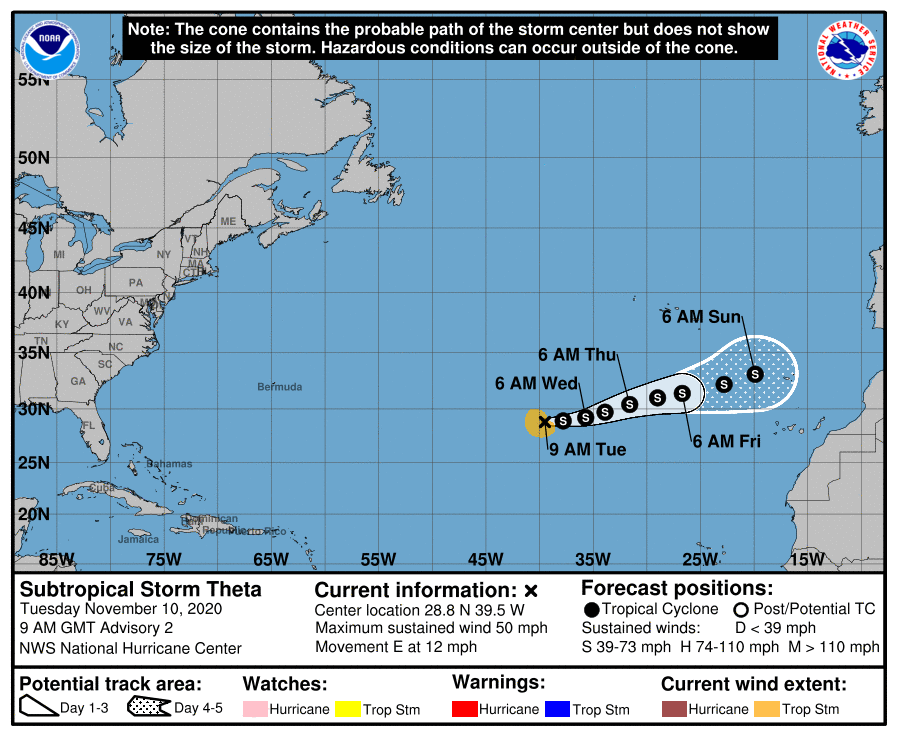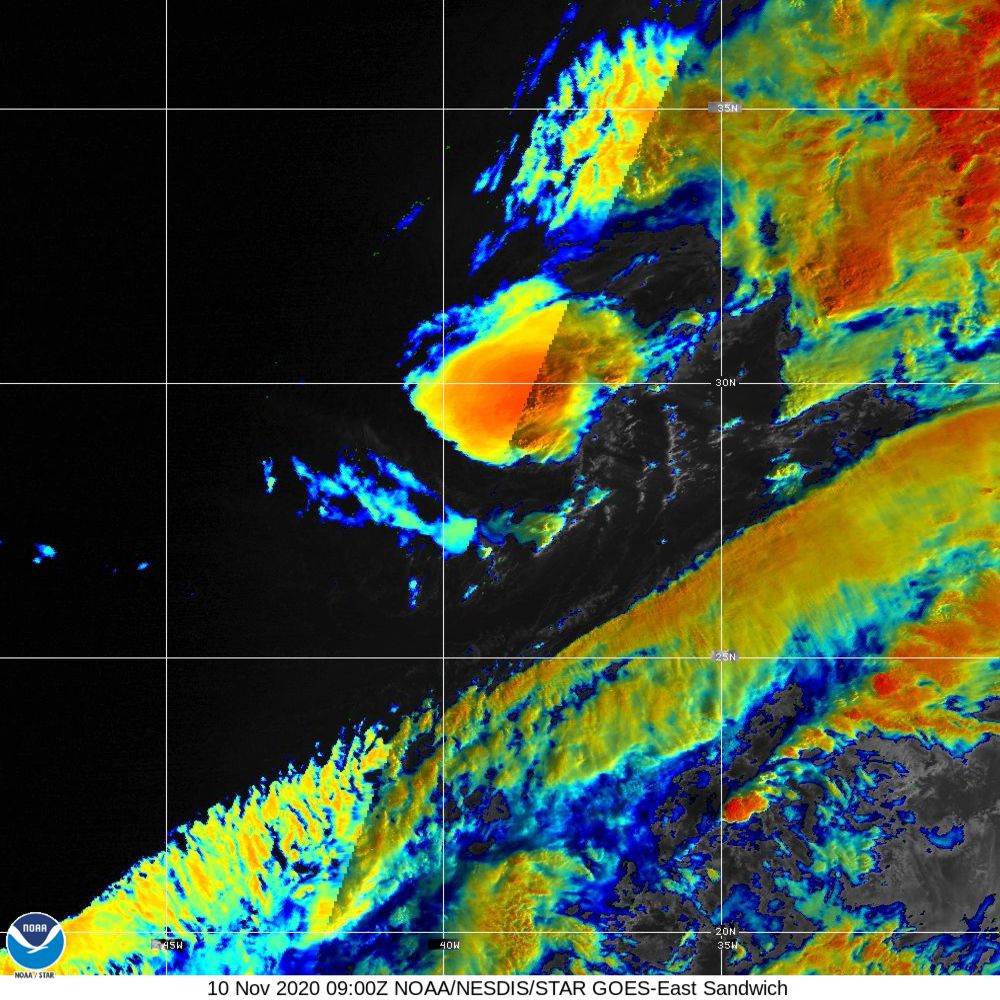“The year 2005 was the most active year in recorded history in terms of 28 total named tropical systems, with Tropical Storm Zeta as the last storm of that season. Only one more named storm is needed for the year 2020 to break that record — and that may possibly occur later this week.”
Subtropical Storm Theta Sets a New All-Time Weather Record
The statement you just read was from this article which gave the latest information and travel advisories from airlines pertaining to Tropical Storm Eta, which is currently over the warm waters of the Gulf of Mexico — and if warranted, another article will be released with updated details about that storm system…
…but a new all-time record has been set with the development and naming of Subtropical Storm Theta, as it is the 29th named tropical storm of 2020, which is the most named tropical systems within one year — meaning that the year 2020 was the busiest hurricane season in recorded history in the Atlantic Ocean basin — and because Monday, November 30, 2020 has not yet arrived, hurricane season has not yet officially concluded, as another system may be in development over the Atlantic Ocean.

Maximum sustained winds of Subtropical Storm Theta — which is currently centered approximately 860 miles southwest of the Azores and is moving east at 12 miles per hour — are 50 miles per hour. This storm is officially classified as a subtropical storm; but it is expected to officially become a tropical storm later this week…
…and the fact that its forward motion is heading east towards Spain and Morocco is quite unusual for a tropical system, as they usually head west — plus, development in the Atlantic Ocean is rather unusual for this time of year — but no land masses are forecast to be affected by this storm at this time.
According to the National Hurricane Center and Central Pacific Hurricane Center of the National Weather Service of the United States, the definition of a subtropical cyclone is “a non-frontal low-pressure system that has characteristics of both tropical and extratropical cyclones. Like tropical cyclones, they are non-frontal, synoptic-scale cyclones that originate over tropical or subtropical waters, and have a closed surface wind circulation about a well-defined center. In addition, they have organized moderate to deep convection, but lack a central dense overcast. Unlike tropical cyclones, subtropical cyclones derive a significant proportion of their energy from baroclinic sources, and are generally cold-core in the upper troposphere, often being associated with an upper-level low or trough. In comparison to tropical cyclones, these systems generally have a radius of maximum winds occurring relatively far from the center (usually greater than 60 n mi), and generally have a less symmetric wind field and distribution of convection.”
The definition of a tropical cyclone is “a warm-core non-frontal synoptic-scale cyclone, originating over tropical or subtropical waters, with organized deep convection and a closed surface wind circulation about a well-defined center. Once formed, a tropical cyclone is maintained by the extraction of heat energy from the ocean at high temperature and heat export at the low temperatures of the upper troposphere. In this they differ from extratropical cyclones, which derive their energy from horizontal temperature contrasts in the atmosphere (baroclinic effects)”, according to the National Hurricane Center and Central Pacific Hurricane Center of the National Weather Service of the United States.
Summary
I personally believe that the National Weather Service of the United States and other official weather authorities should consider using the letters Q, U, X, Y, and Z to name tropical systems — especially with the inclusion of names which are not common in the United States. Quincy, Ursula, Xavier, Yvonne, and Zachary all come immediately to my mind to name storms which usually do not require those letters during a typical season. Only once the entire alphabet has been exhausted — which would have happened in the year 2020 anyway — should the characters of the Greek alphabet be used…
…and ironically, the Greek alphabet uses a name which begins with the letter Z. Why not use one of the aforementioned names which begin with the letter Z?
As far as I know, the name of a tropical system after a character of the Greek alphabet has never been retired. What happens if a storm is strong enough to warrant the name being retired and it is named after a character of the Greek alphabet?
Subtropical Storm Theta is not expected to affect land anytime soon — if at all — so this article is not a travel alert, nor does it contain travel waiver advisories from any commercial airlines…
…but I am sharing this information with you anyway, because I thought that the breaking of a significant all-time weather record was cool…
Source: The National Oceanic and Atmospheric Administration of the Department of Commerce of the United States.

